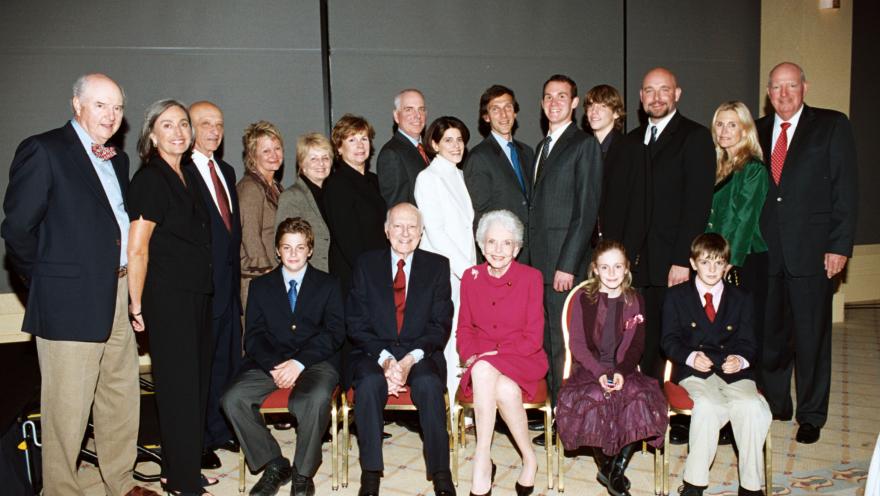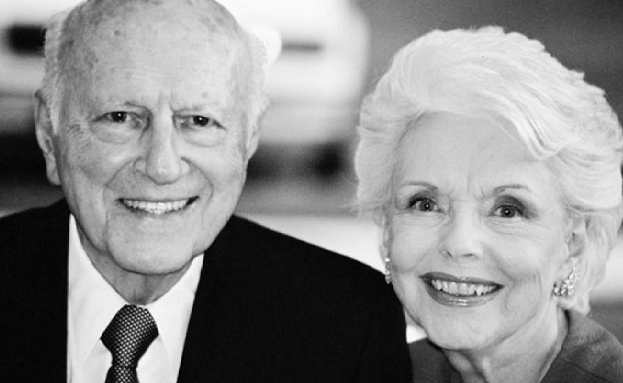There is an urgent need for new and improved therapies for ALS, as there is still no cure. Since 2016, the Lawrence and Isabel Barnett Drug Development Program has supported the preclinical assessment of new and repurposed ALS therapies by awarding grants worth up to $500,000 over two years.
The program is named in honor of the prominent entertainment executive and television and theater actress for their numerous contributions to the Association and their impact on ALS research. Carrying on their parents’ legacy, the Barnett children and the Barnett Family Foundation continue to invest in this innovative program that leverages academic scientific expertise along with industry know-how to drive the crucial transition from laboratory research project to industry drug development effort.
This stage in the drug development pipeline is often underfunded because it is too late for traditional academic funding mechanisms and too early for most industry funding mechanisms. As a result, this point is often referred to as the “valley of death” since promising biomedical ideas often wither and die due to a lack of funding. By supporting projects at this stage, the Lawrence and Isabel Barnett Drug Development Program helps fill this funding gap and has contributed to the expansion of companies and therapeutics entering ALS clinical trials.
Who Can Apply?
The Lawrence and Isabel Barnett Drug Development Program is open to researchers working in industry or at academic institutions worldwide. Applicants should have already selected the lead therapeutic candidate they would like to test as this funding opportunity aims to support programs that have a high probability of entering the clinic within three years.
The application period for 2024 has closed. Click here to explore other funding opportunities.

Impact of the Program
Since the program began, we have committed more than $15 million to support over 40 projects. Approximately 60% of our awardees have established partnerships to help advance their research, received larger grants from funders like the National Institutes of Health and the Department of Defense ALS Research Program, and/or attracted commercial support from pharmaceutical/biotech companies or venture capitalists. In addition, eight projects have moved forward into clinical trials.
Success Stories
- Bloom Science leveraged the preclinical results funded by this program to transition BL-001 into phase 1 clinical testing in healthy volunteers. BL-001 contains two live bacteria found in the human gastrointestinal tract that are believed to support healthy neurological function. The company is planning to launch a phase 2 trial involving people living with ALS and Dravet syndrome, a rare form of childhood epilepsy.
- QurAlis completed pharmacological and toxicological studies of two new antisense oligonucleotides, which paved the way for the first-ever clinical trial of an ALS therapy aimed at restoring stathmin-2 expression, QRL-201. Stathmin-2 is a protein that is important for neural repair and axonal stability, and it is significantly decreased in nearly all people with ALS.
- Research by Dr. John Ravits at the University of California San Diego demonstrated the potential of a genetic modifier called ataxin-2 as an ALS treatment target. Dr. Ravits is helping test this approach as part of Biogen’s phase 1/2 clinical trial of the drug BIIB105.
- Dr. Justin Ichida at the University of Southern California completed preclinical investigations into using PIKfyve inhibitors to treat ALS caused by mutations in the C9orf72 gene. This laid the foundation for a new class of treatments being developed by companies like Acurastem, Verge Genomics and OrphAI Therapeutics.

